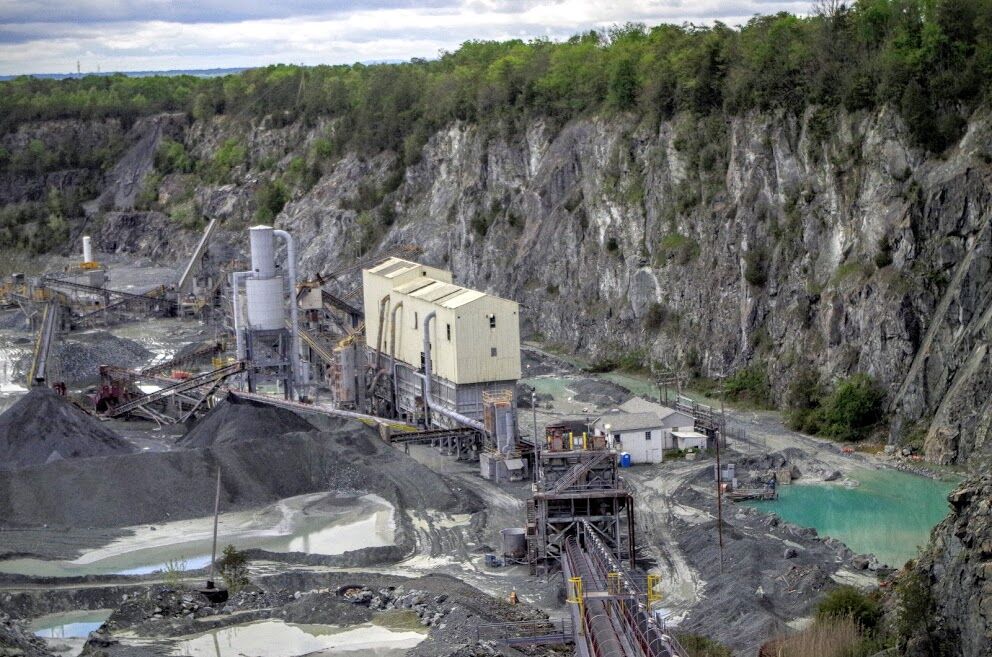The Travilah Quarry, which yielded crushed stone to build the Intercounty Connector and widen Interstate 270, could become part of the solution to the drinking water supply challenge looming over the District of Columbia, Arlington County and the city of Falls Church.
As WTOP first reported in 2016, local water officials have been studying the possibility of utilizing the Travilah Quarry — which is located on Piney Meetinghouse Road in Rockville, Maryland — to provide water storage for local D.C., Maryland and Virginia water utilities in the event that water from the Potomac River would become unavailable or undrinkable.
D.C. Del. Eleanor Holmes Norton said the House’s Water Resources Development Act of 2022, which passed out of committee, Wednesday, aims to provide more resiliency for what is currently the sole source of drinking water produced at the Washington Aqueduct.
“There is an urgent need for Congress to act to protect the drinking water and other infrastructure of the nation’s capital from serious vulnerabilities,” Norton said in a statement, Tuesday. If passed, the bill would authorize the U.S. Army Corps of Engineers to undergo an engineering-and-feasibility study to consider backup water supplies.

The aqueduct is one of the few water-processing facilities with only one source. WSSC Water, which serves most of Montgomery and Prince George’s counties, draws 30% of the water it sends to customers from the Patuxent River. Fairfax Water, which serves Fairfax and Prince William counties, gets a portion of its water from the Occoquan Reservoir.
“We only have about 24 to 48 hours of water supply available should the Potomac River become unavailable to us,” said Tom Jacobus, the now-retired general manager of the Washington Aqueduct, back in 2016. “It could happen very innocently, by accident, or worse, intentionally — it could be very damaging to us for a period of time.”
The Interstate Commission on the Potomac River Basin retained the Black & Veatch engineering firm to evaluate whether the Travilah Quarry could be a suitable water storage facility.
Authorized by an act of Congress in 1940, the ICPRB is an advisory, non-regulatory interstate compact agency of states in the Potomac basin, including D.C. Maryland, Virginia, West Virginia and Pennsylvania.
“If it were filled with water today, right now it would have about 8 billion gallons of water,” Jacobus said in 2016. “You could produce water for about 14 days, and we believe that’s a reasonable amount of time that whatever made the river unavailable to us could be cleaned up, and we could get back to the river.”
The study by Black & Veatch projected that by 2060, the quarry would have a capacity of 17 billion gallons.
Michael Nardolilli, executive director of the Interstate Commission on the Potomac River Basin, said having a backup water supply is crucial for times of drought.
“With global warming, the dry years will be drier, and the wet years, wetter,” said Nardolilli. “What we’re worried about is a turbocharged drought.”
He said using quarries after the stone has been removed has become popular with businesses and water suppliers.
“Loudoun County has quarries that will serve as a reservoir,” said Nardolilli. “Fairfax has plans to do the same.”
The study, commissioned by the ICPRB, provided options for pumping water uphill from the Potomac River to the quarry, where it would remain until needed. Pipes — and gravity — would carry the water from the Travilah Quarry to the Washington Aqueduct, which is located along MacArthur Boulevard near the D.C./Montgomery County border.
“We’ve been briefing stakeholders and local governments, and what we kept coming back to was, ‘Let’s see if we can get the federal government to fund the engineering-and-feasibility study,’ said Nardolilli.
“Even if it’s approved, we still need appropriations,” said Nardolilli. “We’re early in the process — it’s not going to happen tomorrow.”








